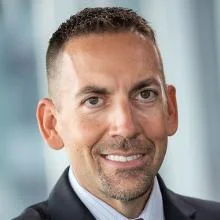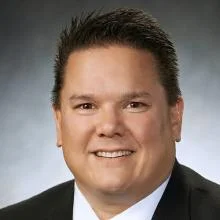When comparing two strong candidates for an IT role, soft skills - the qualities that go beyond the resume - often set apart the one who wins the job. There’s an art to demonstrating these unique skills during an interview; examples are key - the more specific, the better - CIOs say.
CIOs who recently won the 2022 Arizona CIO of the Year ORBIE Awards shared with us the soft skills they are looking for in candidates now and how they are making hiring decisions based on these attributes.
Read on for advice for both IT professionals and hiring managers, including specific questions to ask during the interview process.
Agility and transformational thinking

Mike Shanko, SVP & CIO, Blue Yonder: Agility and transformational thinking are crucial to success in today’s modern IT environment. The ability to communicate, collaborate, and influence others are all key to driving business value.
We seek out candidates who exhibit a passion for their craft, are well-spoken, take risks, and enjoy engaging as part of a team. Candidates that demonstrate these skills tend to have the energy and diversity needed to sustain change and deliver upon business expectations. To gauge these skills, I ask scenario-based questions and request specific examples of how they engaged stakeholders, partnered with team members, and helped others embrace a difficult change.
To attract these types of candidates, we partner with our recruiting team to ensure the job description is not only a true reflection of the job but is also inclusive - not restrictive - in its language. We find the more open and inclusive a job description is, the more diverse our candidate pool.
[ Want to strengthen organizational resilience? Get the Harvard Business Review Analytic Services report: Maintaining momentum on digital transformation. ]
Intrinsic motivation

Anthony DeCanti, SVP & CIO, Republic Services, Inc: One of the things I find lacking in a lot of candidates is motivation. You can’t coach people who lack drive or desire; I always look for these characteristics when hiring. Highly motivated people learn, advance, and find ways to solve difficult problems.
IT is a constantly evolving landscape, and the demand to deliver from the business is only increasing. Without strong motivation, most crumble under the weight of the demand. They have no interest in doing more than what is asked. I try to find people who are restless and want a direction they can head toward. When I find them, I try to learn what motivates them, what creative solutions they have come up with, or what difficulties they have overcome. These questions will tell you a lot about a person’s motivation.
Empathy and influence

Charles Ingram, EVP & Chief Technology and Product Officer, MetaBank: Today’s IT organizations are called upon to drive and deliver significant transformation as technology seeps into all corners of a company and its products and services. With that, new and refined skills are necessary for successful technology leaders to influence business outcomes, innovation, and product development. Empathy, managing ambiguity, and collaborative influence drive innovation and are attributes we look for at MetaBank as we hire and develop top talent.
Empathy lies at the core of successful problem-solving – viewing a problem from various angles leads to better solutions. Managing ambiguity is important because today's technology leaders must be comfortable with the uncertainty of change and work constructively to solve problems that don’t have a clear solution. Gaining the trust, support, and convincing others to take action, or what I refer to as collaborative influence, is essential to building and achieving shared objectives.
Good judgment

Dr. Mark Koan, Vice Chancellor & CIO, Maricopa Community Colleges: There are many valuable soft skills CIOs look for when hiring talent, but one of the most critical for leadership candidates at every level is good judgment.
Leaders often face challenging circumstances where they must quickly make a tough call with insufficient information. Making good choices in these situations can be critical for an organization’s success. It isn’t always easy to assess this in an interview, but behavioral interview questions and careful follow-up can help elicit specific examples from a candidate’s past work experience that may shed light on their judgment.
Leaders who consistently exhibit strong judgment and make sound decisions in difficult circumstances will elevate any organization, which is why CIOs should prioritize this skill when making hiring decisions.
Strong communication skills

Kelly Summers, SVP & CIO, Valleywise Health: Effective communications skills are an essential element that I look for in a candidate. In IT, we have to be effective “translators” of technology, meaning we have to convey very technical details to a business partner in a method that applies to them in their business context or vernacular. As IT solutions become even more ubiquitous across all industries and functions within those industries, we as technologists have to be extremely effective in communicating and translating business requirements into technology solutions and communicating with the constituents we’re attempting to serve.
In today’s recruiting climate, it is extremely challenging to find qualified technical talent who also possess these softer but ever more important skills. I will typically ask a candidate, “Can you give me an example of an extremely difficult project that had challenges with the end users’ engagement and technical understanding of the project, and how you effectively overcame those?” That question provides visibility into their communication style and ability to provide governance to a technology-based project.
[ Get exercises and approaches that make disparate teams stronger. Read the digital transformation ebook: Transformation Takes Practice. ]






